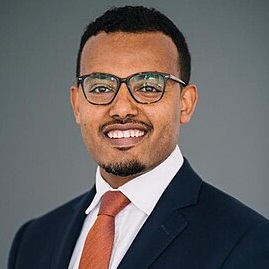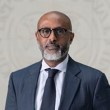Thursday, Apr 24, 2025 | 11:00 AM - 11:30 AM
Location: Cedar Hall HQ1-1-660

OVERVIEW
Over the past year, Ethiopia has embarked on a comprehensive transformation of its monetary and exchange rate regimes. After decades of tight control, adopting a more flexible exchange rate has presented huge operational and communication challenges. Moving to an interest rate-based monetary policy—the first steps towards inflation targeting—and ending financial repression represent another set of formidable policy challenges. Efforts to update the legal framework and internal organization of the NBE to modernize the institution to implement the new frameworks have run in parallel. All in the context of acute foreign exchange shortages, inflation, social and humanitarian pressures, fiscal constraints, a legacy of financial vulnerabilities in SOEs and state-owned banks, and a sovereign debt restructuring. The talk will speak to complex interactions between reform areas, and the critical need for ownership, thorough preparation, and building broad consensus on the how and why of transformative reform.
REPORT
Key Points:
Quotes:
“So I think at the central Bank we are investing a significant amount of time and energy in trying to get the message out to the public. Because you know that is how you buy credibility and you want to approach it with integrity, We closely watch the market dynamics and do what we said we would be doing. I think that the credibility of the central bank is very, very important. So every day you have to earn that trust by the public and people need to understand that we are approaching this with utmost professionalism.” Mamo Mihretu (21:54-22:31)
“The core lesson that I took from this experience is for me the importance of taking your time to prepare. In Ethiopia, we took a significant amount of time preparing internally, doing analysis, and consulting among different government agencies. For outsiders, this could be frustrating. But for us, the amount of time we invested to prepare internally and coordinating among different government agencies is important. So I think the key point is not what we did but how we did it.” Mamo Mihretu (25:09-25:43)
Contributor: Najla Nakhle
SPEAKER

Mamo Mihretu
Governor of National Bank of Ethiopia
H.E. Mr. Mamo E. Mihretu has been the Governor of the National Bank of Ethiopia since January 2023. He is also a member of the Macro Economic Committee chaired by the Prime Minister. He has been a key figure in Ethiopia’s economic reform agenda, particularly in monetary policy modernization, financial sector liberalization and currency stabilization.
Before his appointment as a Governor of the National Bank of Ethiopia, Mr Mihretu served as the founding CEO of Ethiopian Investment Holdings. He has also been Senior Advisor to the Prime Minister on policy reforms and Ethiopia’s Chief Trade Negotiator at the WTO. In short, he has more than twenty years of experience in economic policy reforms.
Prior to joining the public sector in 2018, Mr Mihretu was a Senior Project Manager at the World Bank Group. His other past roles included lecturing at the Addis Ababa University and related academic institutions. Mr Mihretu holds MBA from the Kennedy School of Government at Harvard University. Additionally, he has MA from University of Amsterdam and Pretoria and LLB from Addis Ababa University.
MODERATOR

Abebe Aemro Selassie
Director of the African Department, IMF
Abebe Aemro Selassie is the Director of the African Department, where he oversees the IMF’s operations and engagement with 45 countries across sub-Saharan Africa. Under his leadership the IMF has disbursed some $51 billion to support the post pandemic recovery and foster greener more inclusive growth. Working tirelessly alongside the region’s leaders Mr. Selassie strives to strengthen the region’s financial architecture and support Africa reaching its true potential.
Before taking up his current position in 2016, Mr. Selassie gained extensive experience in a wide-ranging career at the IMF. He held various senior positions, including Deputy Director in the African Department, Mission Chief for Portugal during the Euro Area Crisis and South Africa. He has served as the IMF’s Senior Resident Representative in Uganda and earlier in his career, he worked on the Fund’s lending programs with Turkey, Thailand, Romania and Estonia. While in the Strategy, Policy and Review Department he was deeply involved in low-income country and emerging-market programs and policy design issues. Before joining the IMF in 1994, he worked for the Government of Ethiopia as Principal Economist in the Office of the President and at the Economist Intelligence Unit in London.